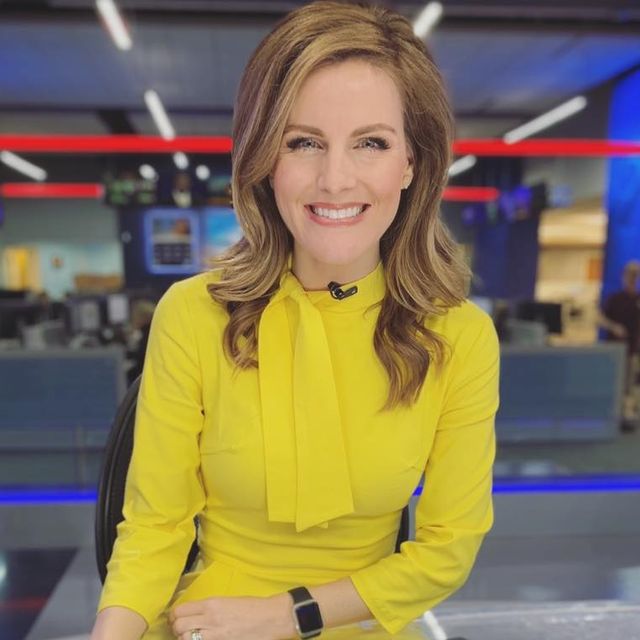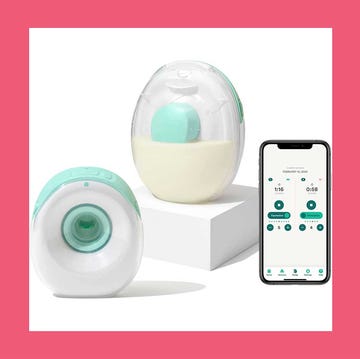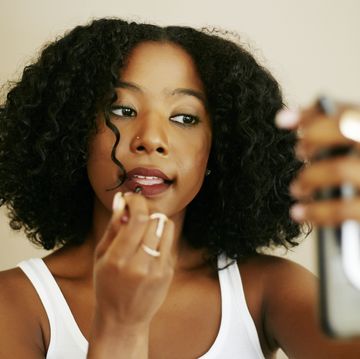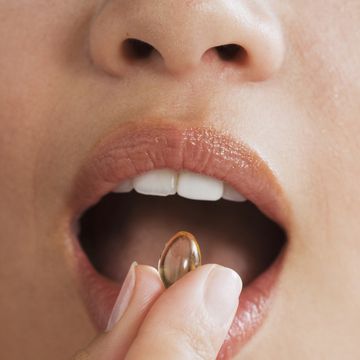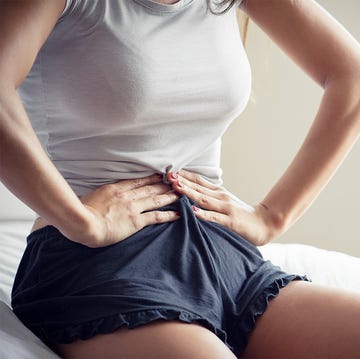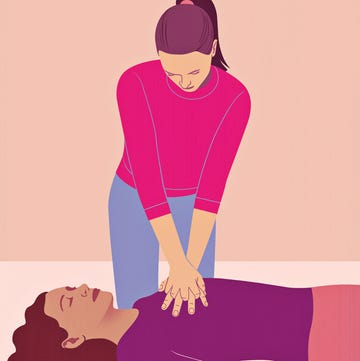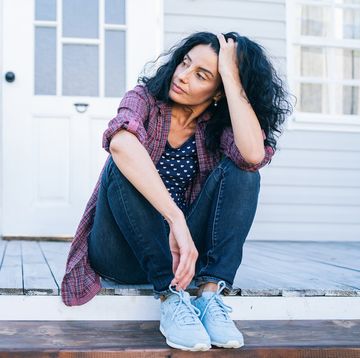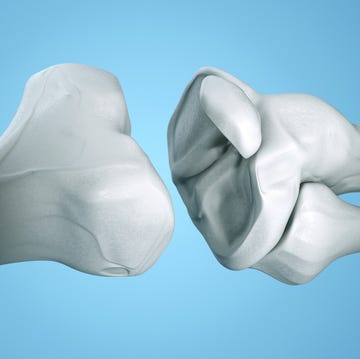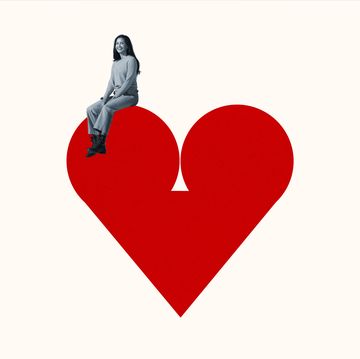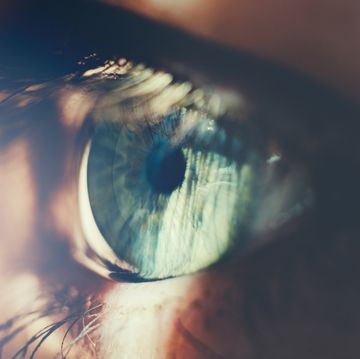Last year, Oklahoma-based TV reporter Ali Meyer live-streamed her first-ever mammogram on Facebook to help raise awareness of the importance of the diagnostic test. Soon after, she was diagnosed with breast cancer. Now, she’s opening up about her journey and why mammograms are so crucial.
Meyer wrote in a new essay for KFOR that getting a mammogram on Facebook “seemed like a great idea.” She was “hoping for a routine mammogram, but that’s not how it went.” Going into the test, Meyer said she had “no concerns; no lumps; no family history; no reason at all to think that my baseline mammogram would turn my world upside down.”
But during her test, her doctor found cancerous calcifications in her right breast. “I will never forget that day. I will never forget telling my husband and my girls after they got off the bus that afternoon,” she said. She decided to share her diagnosis on Facebook.
More From Woman's Day

Meyer was eventually diagnosed with non-invasive ductal breast cancer (DCIS), which she said is “one of the most survivable forms of breast cancer.” Meyer’s medical team recommended removing her breast, something that she said left her feeling “devastated.”
But two months after her first mammogram, Meyer had a mastectomy. “Even though surgery was my choice, it felt like forced mutilation,” she said. “It felt like cancer was stealing part of my body away from me.”
Now, Meyer is making it a point to let other women know about the importance of getting screened. “I will never stop having mammograms,” she wrote. “I will never stop telling women to take care of their bodies and schedule their mammogram.”
What can you expect during your first mammogram?
The American Cancer Society (ACS) recommends that women get annual mammograms at the age of 40 “if they want to.” But, by age 45, the ACS recommends that women start having mammograms annually.
If you’ve never had a mammogram before, the idea of getting one can be daunting. If you don’t have any signs or symptoms of breast cancer, you’ll undergo what’s called a screening mammogram, says Richard Reitherman, M.D., Ph.D., medical director of breast imaging at MemorialCare Breast Center at Orange Coast Medical Center in Fountain Valley, Calif.
For your mammogram, you’ll need to undress from the waist up (you’ll be given a wrap to wear, the ACS says). A technologist will position your breasts on the machine’s plate, one at a time, for the mammogram. The plastic upper plate will be lowered to compress your breast for a few seconds while the technologist takes a picture. (The breast compression only lasts about two seconds each time, the ACS says). You’ll change positions before the next picture is taken, and the entire thing lasts about 20 minutes.
Mammograms don’t exactly feel great, but experts swear it’s not that bad. “Mammography can a bit uncomfortable as it is designed to press out the breast tissue between two plates maximally to see through it, but the soreness improves quickly over time,” says Richard Bleicher, M.D., F.A.C.S., a professor in the Department of Surgical Oncology at Fox Chase Cancer Center.
When do you get your mammogram results?
It’s usually the same day, Dr. Bleicher says. “Sometimes the radiologists may call you back for additional pictures to be taken if there is any question that they see something on the initial films,” he adds.
What happens if something seems abnormal?
If your radiologist sees something that’s off, they’ll either order additional X-rays or sometimes they’ll request an ultrasound or other imaging study. That can help them figure out if what they see is a “true finding” or a shadow from overlapping tissue, Dr. Bleicher says.
If you have questions about getting a mammogram or when you should start getting mammograms, talk to your doctor. They should be able to guide you.
As for Meyer? “This year I had my second, annual, 3D screening mammogram,” she wrote. “I am thrilled and relieved to tell you my mammogram was clear, showing no signs of breast cancer.”
Like what you just read? You’ll love our magazine! Go here to subscribe. Don’t miss a thing by downloading Apple News here and following Prevention. Oh, and we’re on Instagram too.
